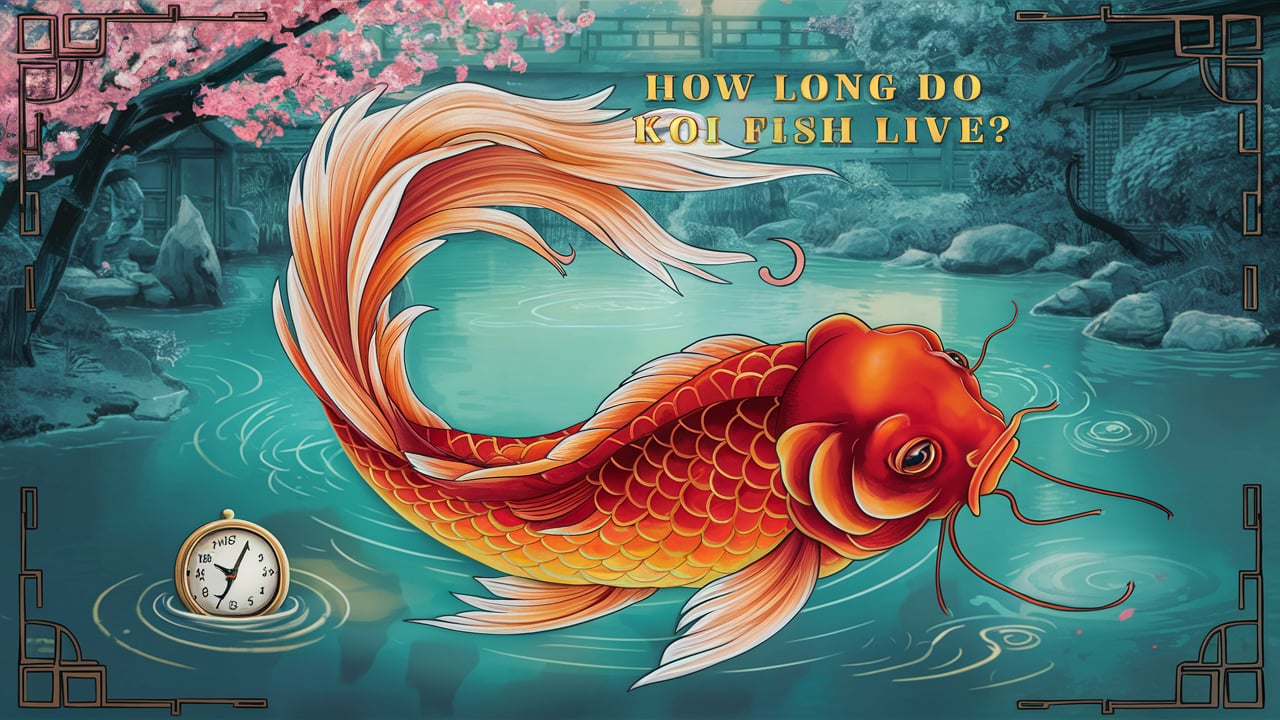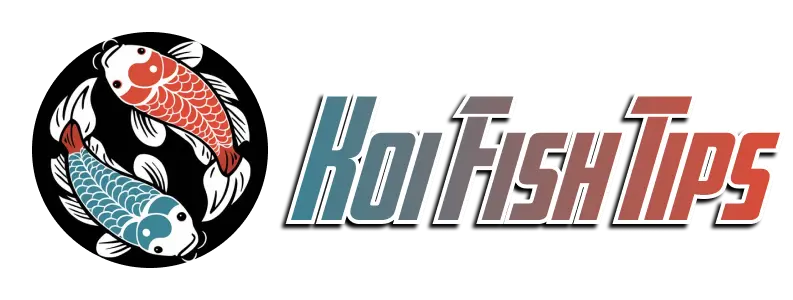Koi fish, with their vibrant colors and graceful movements, are a captivating addition to any water garden. How long do koi fish live? Koi Fish Tips is here to answer that question and delve deeper into the factors that influence their lifespan. We’ll explore the average lifespan of koi, the longest-living koi ever recorded, and the secrets to ensuring your koi live long and healthy lives.
How Long Do Koi Fish Live?
While often touted as “living forever”, the average lifespan of a koi fish is 20 to 30 years. With proper care and a healthy environment, they can easily live 40 to 50 years or even longer.
However, it’s important to note that these are just estimates. Many factors can influence a koi’s lifespan, and it’s impossible to predict exactly how long an individual fish will live.

The Longest-Living Koi: Hanako
Hanako, a female koi, holds the record for the longest-living koi in recorded history. Born in 1751 at the Nishikigoi farm in Japan, she lived an astonishing 226 years, a testament to her resilience and the dedication of her caretakers.
While the exact age of a koi can be difficult to determine, Hanako’s remarkable lifespan was verified through meticulous scientific analysis. Researchers employed a combination of methods, including scale analysis, which examines the growth rings on a fish’s scales to estimate its age.
Hanako’s life spanned a period of immense change in Japan and the world. She witnessed the rise and fall of empires, the advent of modern technology, and the evolution of society. Her longevity became a symbol of hope and resilience, reminding people of the enduring power of life.
Hanako’s story is not just a testament to her exceptional lifespan, but also a testament to the importance of responsible care and a healthy environment. Her life serves as a reminder of the incredible potential for longevity in the natural world and the responsibility we have to protect and preserve it.
Sadly, Hanako passed away in 1977, but her legacy continues to inspire awe and wonder. Her story reminds us that even the seemingly small and insignificant can achieve extraordinary feats, and that life, in all its forms, is a precious gift.
Factors Affecting Lifespan
Several factors play a crucial role in determining how long a koi fish lives:
Genetics
- Breeding: Koi bred for specific traits, like size or color, may have different lifespans than naturally occurring koi.
- Species: Some koi species are naturally more long-lived than others.
Environment
- Water Quality: Clean, well-oxygenated water is essential for koi health. Poor water quality can lead to disease and shorten their lifespan.
- Temperature: Koi thrive in moderate temperatures. Extreme temperatures can stress them and make them more susceptible to illness.
- Pond Size: A spacious pond with adequate filtration and ample space for swimming provides a healthy environment for koi to thrive.
- Diet: A balanced diet rich in nutrients is vital for koi growth and longevity.
Health
- Disease: Koi are susceptible to various diseases. Regular pond maintenance and early detection of disease are crucial.
- Parasites: Parasites can weaken koi and shorten their lifespan.
Care
- Handling: Proper handling techniques are essential to prevent injury and stress.
- Winterization: In colder climates, ensuring the pond is properly
Health
- Disease: Koi are susceptible to various diseases. Regular pond maintenance and early detection of disease are crucial.
- Parasites: Parasites can weaken koi and shorten their lifespan.
Care
- Handling: Proper handling techniques are essential to prevent injury and stress.
- Winterization: In colder climates, ensuring the pond is properly winterized is critical for koi survival.
Tips for Ensuring a Long Life for Your Koi
Water Quality
- Regular Water Changes: Change 25% of the pond water every week to maintain optimal water quality.
- Filtration System: Invest in a high-quality filtration system to remove waste and keep the water clean.
- Testing: Regularly test the water for pH, ammonia, nitrite, and nitrate levels to ensure they are within safe ranges.
Diet
- Balanced Diet: Feed your koi a high-quality diet that includes a mix of pellets, flakes, and occasional treats like vegetables and insects.
- Feeding Schedule: Feed your koi twice a day, only as much as they can consume within a few minutes. Overfeeding can lead to water pollution and health problems.
Health
- Regular Inspections: Inspect your koi regularly for signs of illness, such as lethargy, loss of appetite, or discoloration.
- Quarantine: Quarantine any new koi before introducing them to your existing pond to prevent the spread of disease.
- Veterinary Care: Consult a veterinarian specializing in fish health for any concerns.
Winterization
- Pond Depth: Ensure your pond is deep enough to prevent the water from freezing solid in winter.
- Heating: Consider using a pond heater in extremely cold climates.
- Ice Removal: Remove any ice that forms on the surface of the pond to allow oxygen exchange.
Conclusion
How long do koi fish live? Koi fish are truly remarkable creatures with the potential to live for decades. By understanding the factors that influence their lifespan and providing them with the best possible care, you can enjoy the beauty and companionship of these magnificent fish for many years to come.

Bài viết liên quan
What Do Koi Fish Eggs Look Like? Recognizing And Caring For Koi Spawn
Koi fish, with their vibrant colors and graceful movements, are a captivating sight in any [...]
Jul
How Long Can Koi Fish Live Without Food?
How long can koi fish live without food? As a responsible koi keeper, understanding the [...]
Jul
Koi Fish Behavior: Tips For Keeping Koi Healthy And Beautiful
Koi fish, with their vibrant colors and graceful movements, have captivated aquarists and pond enthusiasts [...]
Jul